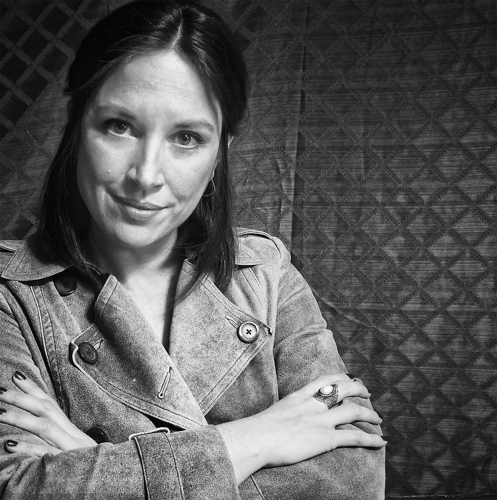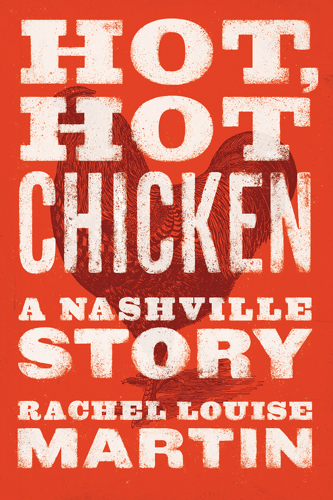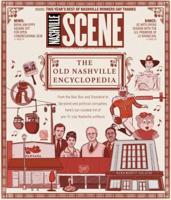
In the introduction to Hot, Hot Chicken: A Nashville Story, Rachel Louise Martin marvels that most white Nashvillians of her generation — herself included — grew up knowing nothing about hot chicken, now Nashville’s signature dish and a global phenomenon. She wondered why that was and suspected that she knew the answer.
To Martin, the story of Nashville hot chicken is the story of America itself — of how our race-based caste system has shaped our institutions, our food and our urban landscapes and the ways those forces have made it so hard for Black entrepreneurs to profit from their own creative endeavors. “Systemic racism meant that hot chicken stayed in a corner of Nashville for almost seventy years before it exploded into the rest of the city,” writes Martin. “When hot chicken left the neighborhood, it did so without taking its progenitors with it.”
Martin answered questions via email.
One thread of this book is a family history of the Princes, the storied creators of hot chicken. How difficult was it for you to find information about them?
Even after emancipation, Black Americans were omitted from the records the nation created. In May 1940, The Nashville Globe, the local Black-owned newspaper, published a list of 41 Black-owned restaurants in the city. Only seven of those businesses were included in the city’s directory.
This purposefully spotty record-keeping made researching this book much harder. The most important and reliable documents I had were the Nashville city directories. Thornton Prince III, the first proprietor of the business that became Prince’s Hot Chicken Shack, often disappeared even from those, but when I could find his name, I could piece together where he lived and where he worked. From those clues, I could use maps and other clues to reconstruct a bit of his life. But there are giant holes in what I was able to know. Those sorts of holes pockmark all of American history.
Another thread of your book is real estate, redlining and urban renewal. How did a story of hot chicken become a story about shifting philosophies of urban planning?
Well, actually, for me the urban planning part came first, and the hot chicken story came second.
Around 2007, I read W. Fitzhugh Brundage’s The Southern Past: A Clash of Race and Memory. Brundage describes how in the mid-20th-century, Black neighborhoods were systematically dismantled through urban renewal and interstate construction. Brundage was talking about places like Durham, N.C., and Savannah, Ga., but I knew something similar had happened in Nashville.
As I dug into the history of hot chicken and the Prince family, I was flabbergasted by the ways the story of the Princes mirrored the major civic and political developments in Nashville. The urban projects forced the Princes to relocate over and over again as “renewal” swept through Black neighborhoods, displacing residents and replacing them with roadways or gentrified neighborhoods.
Does it trouble you that Prince’s hot chicken became “Nashville hot chicken”?
What you’re really asking about is cultural appropriation, a topic that requires more than this space to tackle, but I’ll do my best.
When white eaters tasted hot chicken, many of them wanted to be able to incorporate the dish into their own cooking — that in and of itself was not a problem. Then white eaters wanted to be able to make money off of the dish a Black chef created — that was more of a problem. Then the white cooks and eaters called the dish their own, erasing the Prince family — and that was a huge problem.
One way we’ve done this is by calling the dish “Nashville hot chicken.” This moniker sanitizes and obscures the chicken’s history; it takes the chicken away from the Black family and the Black neighborhoods that produced it; and it lets eaters ignore the way this foodie trend is enriching a number of white restaurateurs. Nashville hot chicken erases the city’s history of segregation, redlining, inequality in education, unjust banking practices, unfair real estate policies and other forms of prejudice.
In the conclusion you ask, “Is there a way for us to finally build a city where every resident has an equal chance to thrive?” After all this research, what’s your take on this question?
I have to believe so, but creating that future will take more work and more discomfort than most of us — especially most of us white Nashvillians — have been willing to do so far.
Changing our spending habits is especially important moving forward. If you live here in Nashville, some of my favorite ways to find Black-owned businesses are to look at listings on RankTribe, consult a crowdsourced listing of local Black-owned small businesses, and check the Black Business Nashville Facebook page for new business announcements.
Redlining and banking inequality and other forms of structural racism aren’t our past; they are our present. It’s time for us — all of us, even those of us who have profited from this inequality — to demand change.
To read an extended version of this interview — and more local book coverage — please visit Chapter16.org, an online publication of Humanities Tennessee.






